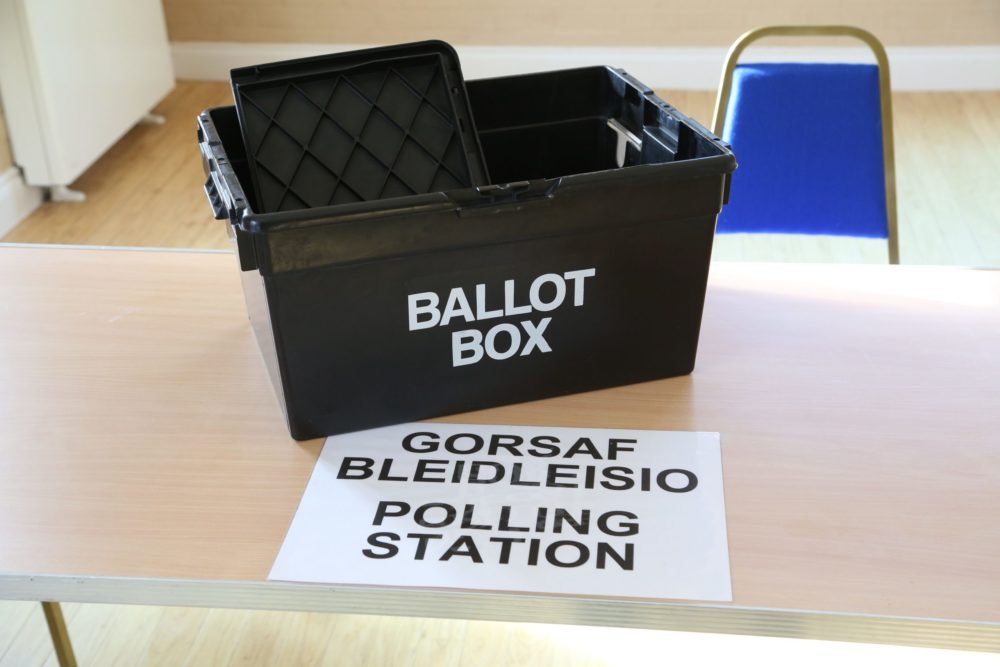We won’t provide time to help progress election reform law – minister

A proposed law to reform the voting system for UK parliamentary elections faces being blocked by the government.
MPs voted 138 to 136, majority two, to allow the Elections (Proportional Representation) Bill to be introduced to the House of Commons for further consideration.
The Bill, tabled by Liberal Democrat MP Sarah Olney, aims to introduce a system of proportional representation for parliamentary elections and for local government elections in England.
Changes
But intergovernmental relations minister Pat McFadden made clear the Government does not plan any changes to the electoral system and it will not provide any extra parliamentary time for the Bill to be considered.
Under the existing first past the post (FPTP) system, voters select their preferred candidate and the candidate with the most votes wins.
Ms Olney wants to introduce a single transferable vote system in which voters rank candidates in order of preference.
Proportional representation
Speaking at Cabinet Office questions, the MP for Richmond Park told the Commons: “Earlier this week, I introduced a 10-minute rule Bill to bring in proportional representation for Westminster elections and English local elections.
“I was delighted that it passed a division of the House. It was supported by Labour members, reflecting Labour Party policy on this matter.
“Now that it is the express will of the House that my Bill gets a second reading, will the Secretary of State commit to giving the Bill Government time so that it can be fully debated?”
Mr McFadden replied: “I hate to do this as we are approaching the festive season, but I am afraid that I’m going to have to disappoint (Ms Olney).
“We have no plans to change the electoral system and I cannot give her the Government time that she requires.”
Second reading
Ms Olney has asked for the Bill to be considered at second reading on January 24, although it does not have priority status in the list of private members’ bills tabled by backbenchers.
The Lib Dem argued the existing FPTP system for parliamentary elections delivered two-thirds of the seats in the Commons to Labour despite the party only attracting around one-third of the votes cast on July 4.
Support our Nation today
For the price of a cup of coffee a month you can help us create an independent, not-for-profit, national news service for the people of Wales, by the people of Wales.






The major parties see PR skin to “Turkeys voting for Christmas” So no surprises here!
Starmer was absolutely and without qualification clear, in a response to Ed Davey at Westminster HoC PMQs yesterday in the asftermath of this vote, that his government has no intention of taking any action which might facilitate a change in the method of electing MPs to the House of Commons.
The lesson from Wales is going to be that people hate PR because it stops them voting for an individual and still doesn’t remove the need to vote tactically. Voter apathy will increase because what’s the point of voting when voting for who you really want is a wasted vote and helps the party you don’t want.
Its still better than first past the post. The fact that an MP can be elected with just 30% of the vote is highly undemocratic.
Apathy isn’t caused by fairness across millions of votes. It about the power people feel when they go to the polling station. Voting for a party rather than an individual takes some of that power away because it’s not them but unelected party officials who’ll choose their democratic representatives. And it doesn’t fix the sense of pointlessness that their tick in a box will make zero difference to the outcome. A preference voting system at least lets people make a positive choice for who they really want themln still influence the outcome if their (perhaps unlikely) first choice doesn’t make… Read more »
McFadden didn’t get an early Xmas gift either poll out this morning on Westminster puts Tories in lead 26%, Reform 2nd 24% and Labour 3rd 23%.
All within 1 to 2 percentage points, but then 1 poll does not make a Xmas.
During the late 2000s and early 2010s the argument against PR was that ‘it would let the BNP in through the back door.’ Yet this was before mainstream parties were infiltrated by extremists. Rees-Mogg, Braverman Truss etc should have been in UKIP. The same thing in the US where the Republican Party have been taken over by the Trump MAGA fanatics. Both Boris and Trump purged the moderates within their parties. If 10% of the electorate are far right then they should have 10% of the seats, thats democracy, but it doesn’t mean we have to like it, give them… Read more »
While the STV method proposed is marginally better than fptp, I think a proper PR system such as that used in Germany is infinitely preferable. It results in parties having numbers in parliament proportional to their total votes, excludes any parties that fall below 5% of the votes, and still allows half the members to be chosen individually by the constituencies.
STV isn’t proposed. It’s the party list system.
The article states: Ms Olney wants to introduce a single transferable vote system in which voters rank candidates in order of preference.
Is it wrong?
The name of the “Elections (Proportional Representation) Bill” doesn’t specify STV. While STV is more proportional than FPTP it’s not the most proportional system. Wales has ended up with the most proportional system which is going to damage voter engagement that Ms Olney wants to improve with this bill. People need to be clearer when they talk about PR what it is they want to fix. The bill should be called the “Elections (Preference Voting) Bill”.